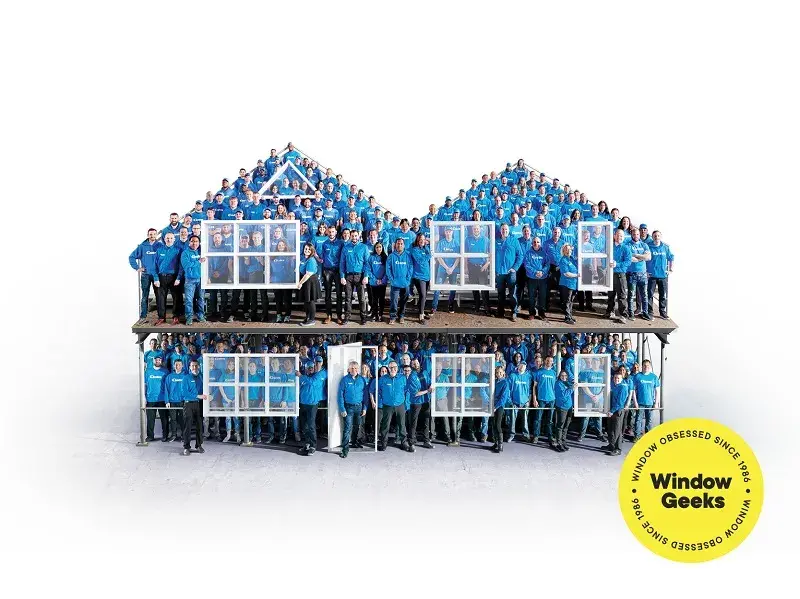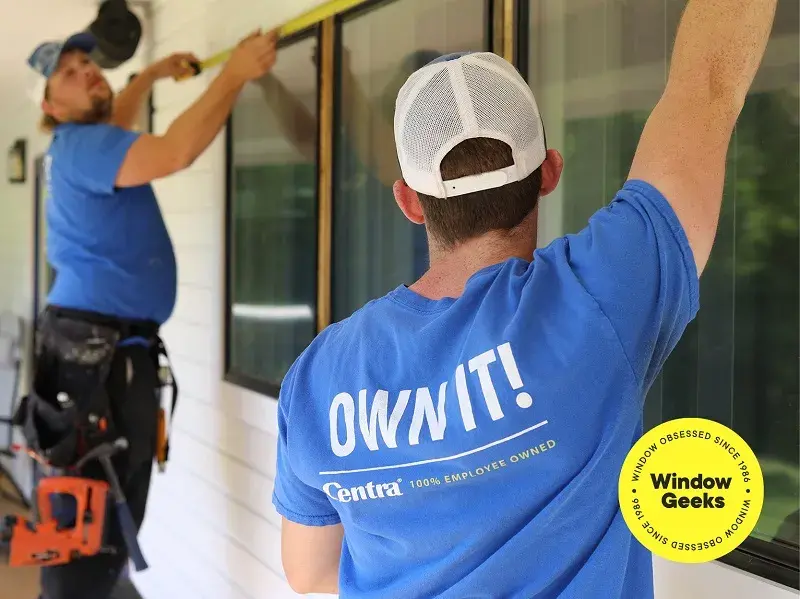Categories
Trending
Comfort Energy Savings In The News
Discover Centra’s Supreme Collection Windows: The Best Option for Comfort and Style
Budgeting Energy Savings
Are Energy-Efficient Windows Worth the Investment?
Comfort Energy Savings
Which Windows Are Most Energy Efficient? An Expert Guide to Save on Energy & Costs
Recommended
Window Geeks
How Does a Window’s Sealed Unit Stay Sealed?Window Geeks
What is the proper airspace for 3mm 3mm double pane windows?Why are Window Mullions Used?
Window mullions are a common sight, but why might they be used on some windows and not others? And why would they sometimes be used on a newer window but not an older one? Read on for the Window Geeks’ perspective!
A window mullion example
We recently traveled to Banff, Alberta, for a conference with Fenestration Canada and stayed at the stunning Banff Springs Hotel. If you’re heading to Banff, staying here is a must! It is a colonial-style castle from the 1800s with incredible views throughout. We spent time exploring and having a good look around this beautiful place, and we were in awe of the architecture. There were some elements of the building that, as Window Geeks, especially peaked our interest.
Based on the frame of the window (in the photos below) with mullions, we know this is not an original window and suspect this could be from the 60s, around the time when they started manufacturing windows with aluminum frames. Then we have a much older window, one without mullions. Why are the two different?
Why doesn’t the original window have mullions?
Could it be that one is an aluminum window, and one is wood? Is it ancient code that dictated the design of one window to the other? Yes, one window is aluminum and one is wood. And yes, changes were made in terms of how windows are regulated. You’re getting warmer…
The fundamental difference between these two windows is glazing, or to be more precise, the amount of it. The older window is single pane, while the newer one is double. To retrofit this window they likely took out a piece of glass... and to get it up to this floor of the hotel, they would have had to make it smaller. Double glazing adds a considerable amount of weight, and in order to hoist this window to the second floor, they would have to break the window apart into smaller pieces. Mullions are a good answer to this conundrum.
Mullions can allow for 8mm thick glazing, while the older window pictured is likely only 3mm thick. At the end of the day this is simply a case of logistics, and goes to show the kind of thought that goes into designing and installing a window.
As new glass technology emerges and tighter code requirements come into play, the Window Geeks can’t help but wonder how the future service of windows such as this will look.
We Are Your Certified Window Geeks!
We love to talk windows! We’re here to help, so if you have a question about your window project all you have to do is reach out. Contact us early in the process so that our experts can make sure everything is correct from the get-go.
For more information on this topic (and many more!) contact our local Employee Owners at 1-888-534-3333 or drop us an email at info@centra.ca. Join the club and become a Window Geek yourself by signing up for our biweekly newsletter, which provides news, advice, and tips about the window industry and upcoming events, and test your window knowledge by following us on LinkedIn and Twitter.



